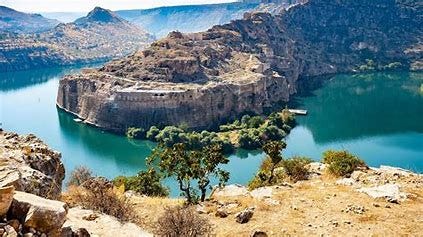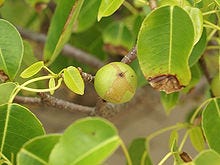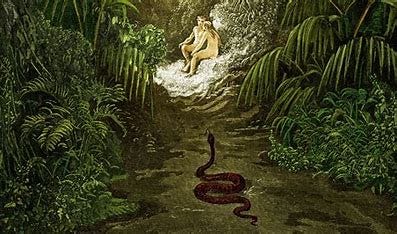“How can I rest, how can I be at peace? Despair is in my heart. What my brother is now, that shall I be when I am dead. Because I am afraid of death I will go as best I can to find Utnapishtim whom they call the Faraway, for he has entered the assembly of the gods.” — Epic of Gilgamesh
Unlike their various Indo-European counterparts, The Norse Gods were not technically immortal. Zeus, Indra, Perun… all those guys could be hurt, sure. They could be banished, absolutely. They could even, in extreme cases, be swallowed and absorbed into almost nothing. Yes.
But they couldn’t die.
Thor could die though.
Odin could die.
The Aesir were, in some sense, only divine by proxy and, when dead… they tended to stay that way.
Baldr, for example. The god of light. So beloved and so radiant and gentle that his mother, Frigg, went all around The Earth making all things, animals, rocks, plants and trees, swear an oath to never hurt him. As a result, it became quite the game among the gods to hurl stones and knives and fire at their brother, laughing uproariously as rocks and metal and flame simply gave up, bouncing off shining Baldr’s chest. Loki though, that orphaned child of another race, he discovered that Frigg had only gotten an oath from almost everything. She had forgotten to secure the promise of one creature: humble mistletoe.
With all his Frost Giant cunning, Loki fashioned the hard, budding stem of a mistletoe branch into a point and, affixing it to an arrow, gave to Höd, the blind god, and told him to shoot at Baldr one more time so they could all have another laugh.
Höd did so and Baldr, the god of light, died.
He did not come back. Not, at least, until after Ragnarök, when the whole of the cosmos hits reset.
Not only could the Norse gods be killed in surprisingly normal, mortal ways, their immortality was also not intrinsic to themselves but sustained artificially by the eating of Iðunn’s (Idun’s) golden apples. In a very “Garden-of-Eden-esque” trope, the goddess Idun was the keeper of a secret tree (perhaps Yggdrasil itself) on which grew fruit that granted eternal youth to those who ate it. Once, when Idun and her fruit were taken (again by Loki’s tricks), the gods rapidly began to age and grow frail, and, if not for a last-minute act of heroism which regained the apples, would have also, presumably, died.
The Aesir you see got their divinity from someone else. Who is never specified. I suppose whoever made The Tree.
It was April, 1513, when Ponce de León first caught sight of Florida. Knowing it as it exists today, in its present state of retirement homes and overpriced surf shops, the idea of Florida as a mythical land of magic is, for us, perhaps hard to comprehend. Excluding brief visits to northern Canada made earlier by the Vikings though, this April day was the first sight of “America” that anyone from Europe, Asia, or Africa had ever had. Imagine the shock. Imagine the mindset of a man who grew up in a culture that thought they had the whole world fairly well mapped out… only to discover that, no, there were actually two whole other continents they had no idea about. Two continents, completely unmapped and unexplored. To their eyes it was, literally, a “New World” and…
…
And who knew what it might contain?
What if, for example, what if just maybe… what if this new world was where The Garden of Eden had been located?
You know. What if?
Afterall, it had rained forty days and forty nights hadn’t it? Ponce’s own journey across the ocean in a boat had taken roughly that long and so, what if Noah, the father of all living men, had done likewise? What if, when Noah got on that boat, he’d been carried far, far away from home by the flood? What if Noah had been a Florida Man? What if The Garden were still there, lost somewhere in all that mass of Miami trees?
What if the apples?
What if the rivers of life?
For good reason, modern historians are quite skeptical that Ponce actually had any interest in “The Fountain of Youth”, and certainly it wasn’t part of his official job description. None of his communications with The Spanish Crown mention such a thing and, instead, his charter was limited to very mundane, worldly affairs like the acquisition of land and so on. Additionally, if Ponce were overly concerned with living forever he made no effort to show it, for men scared of dying don’t usually spend a great deal of time seeking out war. Ponce though, unlike modern leaders who send men to die from behind the safety of a thousand miles, was always right in the thick of it. So much so that he was eventually struck down, just like Baldr, by an arrow laden with botanical mischief. A Calusa tribesman you see, a man whose name will be forever unknown to history, coated one of his arrows in the sap of the manchineel tree, a plant of extraordinary toxicity growing even now unawares in many a Floridian’s back yard. The shaft caught the Spainard in the thigh and, as a result, in Spanish the manchineel is called manzanilla de la muerte… the “little apple of death.”
…
I hope you’re catching the theme.
Still. Personally I find it quite plausible that Ponce de Leon had a least a passing interest in The Fountain. I doubt it ever motivated him enough to go rouge from his main mission given him by the crown, no, but, perhaps, as he went about his business, he kept an eye out. Perhaps, you know, just maybe… whilst traipsing through the dense Florida vegetation, a tinge of hope stirred in him whenever he happened upon a spring of water that seem unusually clear, or unusually blue.
He was Catholic after all.
Perhaps not a particularly good one, I grant you, but, nonetheless, a man such as Ponce would’ve been reared on stories of the miraculous and fantastical from a young age. Tales of wonder-working saints and far away magic would’ve permeated his cultural milieu and, as I said, being mariners, the idea that the first great mariner, Noah, might’ve traversed a roughly equal distance of sea in a roughly equal amount of time that they themselves had just done must’ve surely occurred to them. The idea that maybe The Garden of Eden had never been found in all those years between themselves and Adam because, the whole time, unbeknownst to them, their civilization had literally been on another “world”, must’ve surely been there, even if, perhaps, sensible Spainards were too embarrassed to express it. Maybe… just maybe… that’s even part of why Ponce felt it appropriate to name his discovery after the resurrection of the dead.
“Pascua Florida.” The name for Easter in Spanish.
Early stories of the cyclops are, perhaps, misunderstood. For reasons seldom explained and even less often explored, many of the Titans, Frost Giants, Nephilim, and other enormous monsters of antiquity were said to have one eye and, possibly, as in the case of Odysseus and Nobody, we’re meant to take that literally. Maybe though, saying that the old gods were cyclopes, or that they had “one eye”, might have meant something a little different. Maybe it meant rather that they had “single focus”. That they tended to only one thing.
“The light of the body is the eye: if therefore thine eye be single, thy whole body shall be full of light.” — Jesus. Bible, Matthew 6:22
The great kings of the past you see, the divinized ancestors, they acquired their status by creating clearings… empty spaces in the woods. Imagine you’re a caveman or a cavewoman, fighting tooth and nail every day against the jungle with its snakes and bugs and panthers and thorns and prickle bushes and uneven ground that trips you every time you walk. Then imagine that someone, some great someone, with his magic axe, fells a clearing in that jungle, and suddenly… you find relative peace. Flies and ticks aren’t always on you, you can see the ground and step without fear of snakes, you don’t have to worry that maybe a giant cat is right next to you all the time, lurking just behind the nearest tree. And… moreover…
Suddenly you can see the sky.
Those great kings were temple builders you see. “Temple” coming from the proto-Indo-European root “Tem”, meaning, “to cut”, or “to clear.” Chopping down the forest protected you yes, but, as a bonus, all that impenetrable mass of branches over your head is now gone and at last you can see The Heavens. The Stars. The Angels. The Gods.
And perhaps that King, that Titan, that Cyclops… perhaps he maintained his status by guarding that clearing. Guarding it with single, unaltering focus. His divine mission, to keep the chaos of the wilderness at bay.
Gilgamesh was not a cyclops. At least, as I say, in the physical way. But I think it’s clear from the story that his status comes, in part, form his ability to keep The Wild away from his people, so, perhaps he was a cyclops. You know. In the metaphorical sense. At any rate he had certainly, like the real cyclopes, devolved into a monster. A semi-divine humanoid, raping any women that he wanted, putting people into slavery, and killing anybody who told him “No.” A mighty man, Gilgamesh, or whatever amalgamation of anonymous historical figures contributed to his myth, may have upkept his sacred duty of protecting his people from The Forest but, in so doing, had amassed near absolute power and, by that power, become near absolutely corrupted.
Hearing the lament of his people, the gods decided to check Gilgamesh’s power by showing him that they could allow The Wild to best him if they wished. Creating their own monster, Enkidu, a giant Wildman covered in hair, they set him outside the bounds of Gilgamesh’s clearing… and waited for the battle to ensue. The harlot Shamhat found Enkidu and, through her feminine graces taught him to talk, and told the Wildman all about the abuses of her king. Filled with newfound love for this woman, and with it jealousy and anger, Enkidu ripped forward onto the scene and locked arms with Gilgamesh, fighting the great king to a tie. The two men decide to become friends after their battle, but now there exists a permeant counterbalance to Gilgamesh’s tyranny. If he steps out of line, The Wild… The Wildman, may at any moment bend him back.
Time passes.
After many adventures and battles together which would have made the Aesir blush (including slaying the Mesopotamian equivalent of a Frost Giant), the gods decide that Enkidu must die. The two men, together, were too strong. They were upsetting the natural balance.
“My friend Enkidu, whom I loved so dear, who with me went through every danger, the doom of mortals overtook him.
Six days I wept for him and seven nights: I did not surrender his body for burial until a maggot dropped from his nostril. Then I was afraid that I, too, would die. I grew fearful of death, so I wandered the wild.”
— Gilgamesh
Until that point Death had just been something that happened to other people. Something Gilgamesh dealt out upon his enemies and his lessers… not something that happened to his equal. The horror of sitting with his friend for a week while he slowly rotted struck fear and disgust into his heart and he, for the first time, realizes that he too, would die.
Maybe we all go through something similar. At first, when we are young, for most of us Death is just an abstract idea. Bugs die. Plants die. If one is a meat eater than around age four or five one becomes vaguely aware that the food you are eating was similarly once alive. But… until death happens to a loved one. A grandmother maybe. A beloved dog... When that happens it becomes real.
When that happens, you realize suddenly that, someday… death will happen to you.
Some don’t of course. Some people seem to refuse to realize it, repressing or suppressing such thoughts and becoming, in my opinion, very maladjusted. Perhaps Gilgamesh was likewise so corrupt in part because, until Enkidu, he had refused to accept Death. Ignored it. Pretended, maybe, that it wasn’t real. Like a middle-aged woman fighting off death with yoga and Botox, perhaps he kept the specter of death at bay by perpetual orgies and displays of strength. You know, “Look how alive I am. How vigorous. How virile.” But now the shock of the corpse before him brings all that crashing down, prompting The King to go off in search of his own golden apples. His own fountain of youth.
He goes to see Noah.

Utnapishtim spoke to Gilgamesh, saying: "Gilgamesh, you came here exhausted and worn out. What can I give you so you can return to your land? I will disclose to you a thing that is hidden, Gilgamesh... I will tell you. There is a plant... like a boxthorn, whose thorns will prick your hand like a rose. If your hands reach that plant you will become a young man again."
Utnapishtim is the Noah character of Sumerian legend, because everybody has a flood story. In Sumerian mythology, Utnapishtim was told by the gods to build a great boat for himself, his family, and all the animals of creation because the god Marduk was going to flood the world. So far, so Bible, and apart from the names of the characters this story probably adheres well to the one you heard in Sunday School. Where it differs though is after the flood, because, as a reward for his dutiful service, Utnapishtim and his wife are granted immortality, eternal youth, and a place amongst the deities of Heaven. Reasoning therefore that if immortality could be granted to one man, it might be granted to another, Gilgamesh sought Noah out, asking him for the secret to eternal life. After some misadventures, Noah tells The King that there is a plant you can eat which, like the Aesir’s golden apples, grants eternal youth to any who regularly consumes it. The catch is though that it only grows underwater. Far, far, beneath the depths where most mortal men could reach.
Fine. Gilgamesh is not most mortal men and he is well pleased by the news. In his battles with The Ogre and The Bull of Heaven he had performed feats of strength rivaling that of the gods and so, undeterred, he tied heavy stones to his feet and dove into the sea, sinking far down to the bottom. In the dark he succeeds. He finds the plant. Overjoyed, he cuts the stones loose from his legs and resurfaces, jubilant that he has defeated Death.
…
But.
One night, one the way back home while Gilgamesh stops to bathe, a serpent comes and devours the plant, stealing eternal life for itself and leaving Gilgamesh alone, doomed to die.
For whatever reason, deep in the psyche of Mankind is the belief that we die because of our diets. Maybe that’s even why it’s called that. Diet. “Die-it.” Who knows? You see this all…
Keep reading with a 7-day free trial
Subscribe to Holy is He Who Wrestles to keep reading this post and get 7 days of free access to the full post archives.








